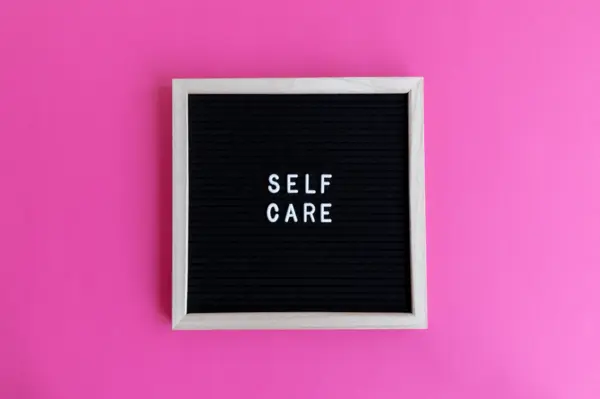Educator Self-Care: Prioritizing Well-being in Student Life Work
Recent insights from student life professionals reveal that maintaining personal well-being is not just beneficial—it’s essential for sustaining effective support for students. In a compelling conversation on the Dean’s Roundtable podcast, Dr. Liza Talusan shares valuable perspectives on the importance of educator self-care and its impact on student support services.
A seasoned professional in higher education residential life, Dr. Talusan reflects on the evolution of her approach to self-care throughout her career, offering crucial insights for those in student life and justice work.

The Evolution of Self-Care in Education
The landscape of student life work has dramatically changed over the years, yet one challenge remains constant: the tendency for education professionals to prioritize student needs over their own well-being. Dr. Talusan’s journey from exhaustion to enlightenment offers crucial insights for those struggling with this balance.
“I had to start caring about me,” Dr. Talusan reflects. “It sounds very selfish for those of us who do student life and justice work, but I had to say, I believe in me. I’m worthy of rest and time.” This realization came only after experiencing the physical and emotional toll of constant availability.
The Challenge of Self-Care in Student Services
Student life professionals often find themselves caught in a continuous cycle of giving, sometimes at the expense of their own health and well-being. This pattern is particularly evident in residential life settings, where:
- The 24/7 Nature of the Work
- Late-night student crises are common
- Personal time boundaries are frequently tested
- The expectation of constant availability can feel overwhelming
- The Emotional Labor
- Supporting students through various challenges
- Managing complex interpersonal dynamics
- Carrying the weight of student struggles
- The Professional Identity Struggle
- Balancing the desire to help with personal needs
- Confronting guilt over setting boundaries
- Navigating the perception of “selfishness”
Key Lessons in Professional Sustainability
Acknowledging Personal Worth
The journey to sustainable practice begins with self-validation. As Dr. Talusan emphasizes, if professionals don’t prioritize their own well-being, no one else will step in to do so. This acknowledgment serves as the foundation for establishing healthy professional boundaries.
Evolution of Professional Boundaries
Experience brings wisdom in setting healthy limits. Dr. Talusan candidly shares how her approach has matured over time: “I’ll be honest again, how I behaved in my younger years is different from how I behave now.” Early in her career, she would “pull all-nighters with students” and promise unlimited availability. Now, she recognizes the importance of sustainable support practices.
The Impact of Institutional Culture
In both college and boarding school settings, the concept of “in loco parentis” creates unique challenges for educators. While responsible for student welfare, professionals must also model healthy work-life boundaries for their students.
Creating Sustainable Support Systems
For those working in residential life settings, whether in college dormitories or boarding schools, developing sustainable practices is crucial. Here’s how to build a framework for lasting success:
- Establish Clear Boundaries
- Set specific hours for availability
- Create protocols for emergency situations
- Communicate boundaries clearly to students and colleagues
- Develop Support Networks
- Build relationships with colleague support systems
- Create backup coverage plans
- Share responsibilities within teams
- Implement Self-Care Practices
- Schedule regular breaks
- Maintain personal interests outside of work
- Prioritize physical and mental health
Moving Forward: Practical Implementation
For Individual Educators
- Start small with boundary-setting
- Track energy levels and adjust accordingly
- Create personal self-care rituals
For Team Leaders
- Model healthy work-life boundaries
- Support staff in setting limits
- Create systems for shared responsibility
For Institutions
- Develop clear policies about staff availability
- Provide adequate coverage and support
- Encourage and validate self-care practices
The Impact of Self-Care on Student Support
When educators prioritize their well-being, they’re better equipped to:
- Respond effectively to student needs
- Maintain emotional availability
- Model healthy boundaries for students
- Sustain their passion for education
- Create more stable support systems
The message resonating from Dr. Talusan’s experience is clear: educator self-care isn’t an indulgence—it’s a professional necessity. As her journey illustrates, acknowledging one’s worth and right to rest isn’t selfish; it’s essential for maintaining the capacity to support students effectively. The future of student life work depends on professionals who can sustain their energy and enthusiasm through intentional self-care practices.
Watch the whole podcast here!
Share Your Experience: How do you balance self-care with the demands of student life work? What boundaries have you found most effective in maintaining your well-being while supporting students? Share your strategies and challenges in the comments below.
Bridget Johnson
Want more support as a student life professional?
Look no further than the Deans' Roundtable Community
- Network with a vast directory of student life professionals like yourself
- Gain a multitude of professional development opportunities to be the best version of yourself
- Gather expert advice on the important questions you need answered

